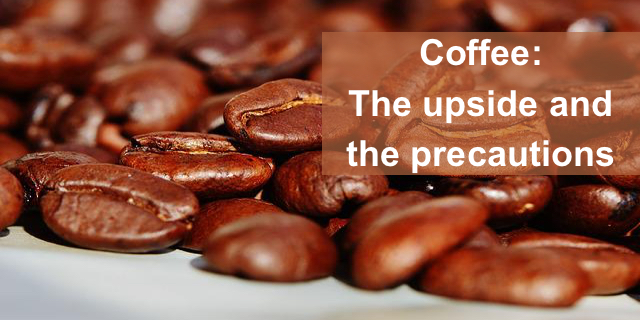Recent studies contribute to the evidence that there are benefits to drinking coffee. Here’s the current scientific thinking on the subject.
Recently published research:
One study, published in 2022, examines data from a 16,000 person study called Atherosclerosis Risk in Communities (ARIC). ARIC’s study goal is to see if there’s any correlation between coffee drinking and acute kidney injury (AKI). Started in 1989, it’s got long term data — the median follow up was 24 years. [1]
Noting that “habitual coffee consumption is associated with a lower incidence of chronic kidney disease,” they find that drinking more of it is also associated with fewer cases of AKI. Measuring consumption from less than one cup to over three cups per day, they find that the reduced risk for AKI remains significant even after adjusting for variables like age, sex, race, and physical activity.
That’s just the latest bit of positive news added to the growing list of benefits associated with drinking coffee. In a 2020 article in the New England Journal of Medicine (NEJM), authors from Harvard and Brigham and Women’s Hospital say, “Consumption of 3 to 5 standard cups of coffee daily [is] consistently associated with a reduced risk of several chronic diseases.” Frank Hu, chair of the Department of Nutrition at Harvard’s T.H. Chan School of Public Health and one of the authors of that article, says that those diseases include type 2 diabetes, heart disease, and depression. [2, 3]
Coffee is not just caffeine in tasty water – it contains hundreds of bioactive compounds, some of which are polyphenols. Polyphenols, also found in tea, act as antioxidants, chemical elements that fight the DNA-damaging effects of free radicals in cells. [4, 5]
But Isn’t Coffee Bad for You?
Many of us recall studies that linked drinking coffee with multiple diseases, including heart disease. However, Hu says that many of them didn’t adjust for the fact that many study subjects were also smokers. More recent research now uses statistical methods that correct for these and other falsely attributed correlations.[3]
What about the Caffeine?
Noting that some people are more sensitive than others, the authors of the NEJM article say its contribution to agitation is related to the amount consumed. Here’s a table showing the relative amounts of caffeine in common beverages:
The Cautions that Go With Consumption
Before we all dash out for a celebratory large latte, however, there are things to take into consideration.
- Caffeine is associated with lower birth rate. It readily passes the placenta.[2]
- Don’t be in denial about how you take it. An editorial published with a study on longevity related to sweetened or unsweetened coffee notes that the amount of sugar reported in that study, and many others, is much less than that in any popular chain coffee-based specialty drink. [6]
- Milk reduces the effect of polyphenols in both coffee and tea. [7]
- How you brew it matters: A Norwegian study finds that drinking unfiltered brew, such as Turkish coffee, is associated with higher mortality than filtered. [8]
- Caffeine poisoning is rare, but possible. Most cases come from athletes or people with psychiatric disorders taking highly concentrated forms of powdered or liquid caffeine – the equivalent of 75-100 cups of coffee. A fatal dose is 8.8 grams. [2]
The Bottom Line
While there is growing evidence linking coffee with health benefits, many of us load it with cream and sugar, and that effect hasn’t been tracked in many of the studies. Even with the body of evidence associating the beverage with healthy outcomes, the NEJM article says:
Current evidence does not warrant recommending caffeine or coffee intake for disease prevention but suggests that for adults who are not pregnant or lactating and do not have specific health conditions, moderate consumption of coffee or tea can be part of a healthy lifestyle.
That is, for most people it’s not unhealthy, but don’t rely on coffee as “health food,” especially if you drink more than 3 cups a day or don’t take it black.
References:
[1] https://www.kireports.org/article/S2468-0249(22)01369-9/fulltext
[2]https://www.nejm.org/doi/full/10.1056/NEJMra1816604
[3]https://www.hsph.harvard.edu/news/hsph-in-the-news/is-coffee-good-or-bad-for-your-health
[4]https://www.discovermagazine.com/health/is-coffee-good-for-you-or-not
[5]https://www.hsph.harvard.edu/nutritionsource/food-features/tea/
[6]https://www.acpjournals.org/journal/aim/tip-sheets/2022-may-31
[7]https://www.hsph.harvard.edu/nutritionsource/food-features/tea/
[8]https://journals.sagepub.com/doi/abs/10.1177/2047487320914443?journalCode=cprc
Image courtesy of Alexas_Fotos via Pixabay





